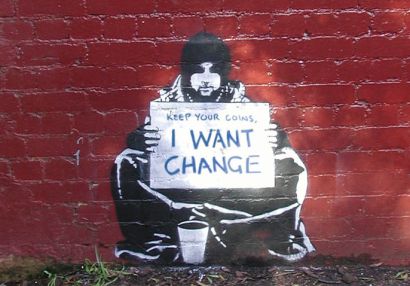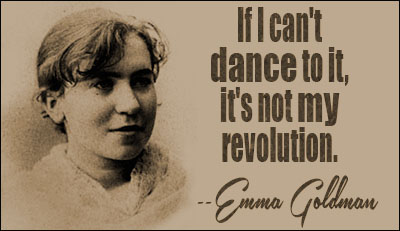Can you smell it? Can you feel the unease, the hard shift to the right is feeding off? The dead ideology of Neo-liberalism is everywhere. It’s a rotten corpse in everything we look at, everything we touch. And yes while it might feel uncomfortable, we should actively feel distaste when we look at it and revulsion when we touch it, this is the reality of living under a #deathcult.
For the past 40 years, we’ve been immersed in a system that most people still worshipped as if there’s no alternative. But, where is the path out of this smell of this uneasy feeling? Where is the vision for something different, something rooted in solidarity and sustainability rather than profit and exploitation?
To find a different path, take a moment to look at this example of a #4opens project from a simpler time: Wikipedia revision history from 2011. Note the commitment to “strict scrutiny”, which required that any security measures serve a compelling community interest and be narrowly focused to achieve that and nothing else.
Compare that principle to the current state of tech, where the #encryptionsist agenda overshadows transparency and community accountability. The shift has been stark, away from openness, away from scrutiny, and towards the path where security becomes a shield for entrenched power and control.
This is what we need to confront, the #deathcult thrives on our passive acceptance of #neoliberal norms of #closed. Revulsion in this mess isn’t just justified; it’s necessary. The path we need to take is in rejecting this hard blocking to open spaces to build the #4opens alternatives we so desperately need.
OMN #indymediaback #openweb #makehistory #OGB

You need to think about this more? Let’s look at an example of this in our current lives, people have been living in the shadow of neoliberalism for so long that worshipping the #deathcult has become their nature. The values of exploitation, competition, and #stupidindividualism are baked into what’s considered “normal” behaviour. In contrast, embracing a #lifecult, based on collaboration, community, and sustainability – feels alien, even threatening, to many of these “normal” people.
This is one of the reasons the #Fediverse and alternative social media platforms have struggled to gain traction with the huge influx of #mainstreaming people fleeing the growth of tech fascism. The Fediverse embodies #lifecult principles: decentralisation, mutual aid, and the rejection of exploitative corporate models. While these are positive ideals, they feel too far removed from the familiar patterns of the #deathcult for most people to take the leap.
A cynical path we could take is to meet people halfway. Instead of demanding they abandon their comfort zone entirely, we could make the Fediverse appear less like a #lifecult at first glance by presenting it in ways that feel more approachable and less intimidating, more like the #deathcult they are used to. On this compromise path, yes, the Fediverse should stay true to its principles, but making it less of an overt #lifecult and more of a practical, attractive alternative, this could be the “common sense” step we need to bring people over. Once they’re in, the actually, very needed, hopefully still existing culture, the values of the Fediverse will begin to work their magic.
What do you think? Should we focus on shadowing the approach to reach more people, or would that risk diluting the values that make the #Fediverse what it is? How do we live this balance in our shared #openweb reboot.




